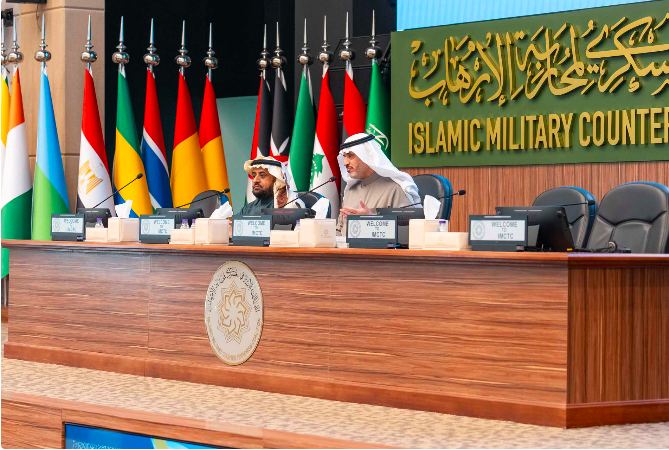At the invitation of the Islamic Military Counter Terrorism Coalition (IMCTC), the Secretary-General of the Muslim World League (MWL) and Chairman of the Organization of Muslim Scholars, His Excellency Sheikh Dr. Mohammed Al-Issa, delivered an insightful lecture on the evolving landscape of intellectual ideologies in today’s world. The high-level event, which brought together representatives from member states of the Coalition, held at the IMCTC headquarters in Riyadh, Saudi Arabia, highlighted the critical need for collaborative intellectual engagement in addressing modern ideological challenges.
In his address titled “A Reading into the Transformations of Contemporary Intellectual Ideology,” Dr. Al-Issa delved into the complex shifts in thought patterns across different regions, especially within the context of rising extremism, misinformation, and ideological manipulation. He emphasized the importance of strengthening intellectual resilience and fostering unity through informed discourse, mutual respect, and religious tolerance.
The lecture formed part of IMCTC’s strategic efforts to bridge scholarly thought with practical counter-terrorism initiatives, acknowledging that winning the war against terrorism and radical ideologies requires more than just military responses. Dr. Al-Issa, a globally respected Islamic scholar, highlighted the role of religious leadership, academic engagement, and cross-border cooperation in promoting peace, understanding, and moderation across the Muslim world and beyond.
During his visit, Sheikh Al-Issa was warmly received by senior officials of the Coalition and given a tour of its operations centre. Scenes from the visit showed him engaging with security analysts, policy advisors, and military strategists as he underscored the critical intersection between faith-based values and counter-terrorism strategies.
His presentation also reaffirmed the Muslim World League’s commitment to promoting moderate Islam and combating extremist ideologies through education, dialogue, and international cooperation. He noted that intellectual reform must be rooted in authentic understanding of religious texts while adapting to the realities of modern societies.
The Islamic Military Counter Terrorism Coalition, headquartered in Riyadh, is a 42-nation alliance established to coordinate and support efforts against terrorism and violent extremism. Its mandate includes promoting ideological, media, military, and financial initiatives aimed at preventing radicalisation and restoring stability in affected regions.
The visit and lecture not only strengthened the intellectual underpinnings of the Coalition’s mission but also reinforced Saudi Arabia’s central role in global counter-terrorism dialogue, particularly through inclusive religious diplomacy.

